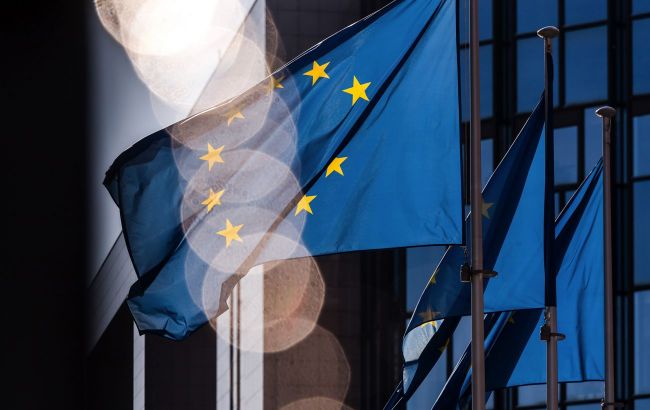EU imposes first-ever sanctions on Russian gas, targeting LNG - Bloomberg
 Photo: EU sanctions will affect Russian gas for the first time (Getty Images)
Photo: EU sanctions will affect Russian gas for the first time (Getty Images)
The European Union has approved a new package of sanctions in response to Russia's invasion of Ukraine. For the first time, sanctions will affect gas, according to Bloomberg.
The measures target Russia's shadowy tanker fleet, liquefied natural gas transshipment, and companies in third countries, including China, that help Russia circumvent previous trade restrictions.
The package, the 14th since Russia's full-scale war against Ukraine began, includes:
- A ban on the transshipment of Russian LNG to third countries via the EU, including a ban on transshipment services, as well as ship-to-ship and ship-to-ship transshipment.
- A ban on the provision of investments, services, and goods for new LNG projects in Russia.
- Sanctions on a dozen vessels belonging to Russia's so-called shadow fleet were used to circumvent the oil price cap and other trade measures.
- Prohibiting EU firms operating outside Russia from connecting directly to the SPFS system, equivalent to Swift, of the Russian central bank, and banning transactions with listed firms that use the system to circumvent sanctions.
- Prohibiting EU operators from conducting transactions with the listed banks that allow trading in technologies and goods used in or required for the production of weapons.
- Restrictions on trade with dozens of new listings, including companies in China, Türkiye, and India.
- Restrictions on political parties think tanks, and media providers from accepting Russian funding sources
- Increased inspections and due diligence are required of EU companies whose goods are still shipped to Russia, often through networks of intermediaries including subsidiaries and subcontractors.
- Export controls on more chemicals, manganese ore, plastics, electronics, and earthmoving equipment that could be used for military purposes, as well as restrictions on helium imports.
- Tougher measures on existing restrictions on air and road transportation, as well as new controls on the registration of Russian intellectual property rights in the EU and the import of Ukrainian cultural property that could be looted by Russia.
The package now has to be formally adopted by member states before it enters into force, and it may still change during this process.
On June 20, the ambassadors of the European Union agreed on the 14th package of sanctions against Russia.
According to European Energy Commissioner Kadri Simson, the proposal for sanctions against Russian LNG was carefully prepared. They will further complicate the logistics of transportation for Russia and force specialized vessels to travel longer routes.

